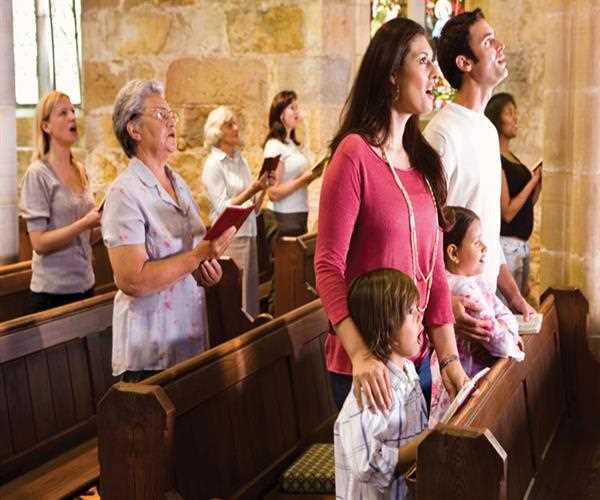
28-Jun-2023 , Updated on 6/28/2023 5:11:15 AM
How might spirituality intersects with the concepts of faith, religion or belief systems?
Highlights
- Automation can lead to the replacement of human workers with machines and artificial intelligence, resulting in job losses for certain sectors or occupations.
- Automation tends to create a division between high-skilled, high-paying jobs that require advanced technical skills and low-skilled, low-paying jobs that can be easily automated.
- As automation advances, there is an increasing demand for workers with specialized skills in fields such as programming, data analysis, and robotics
The concepts of spirituality, faith, religion, and belief systems are deeply intertwined and play significant roles in shaping individuals' lives and societies as a whole. While these terms are often used interchangeably, they possess distinct nuances that warrant exploration. In this article, we will delve into how spirituality intersects with concepts of faith, religion, and belief systems, seeking to unravel the connections and understand their individual and collective impacts on human existence.
- Defining Spirituality, Faith, Religion, and Belief Systems
To establish a foundation for our exploration, let us define the key terms-
Spirituality- Spirituality refers to the personal quest for meaning, purpose, and connection with something beyond oneself. It is an inward journey that involves seeking transcendence, inner peace, and a sense of harmony with the world.
Faith- Faith, generally associated with religious contexts, entails trust, loyalty, and devotion to a higher power, spiritual principles, or doctrines. It involves belief in the unseen and the acceptance of truths without empirical evidence.
Religion- Religion encompasses organized systems of beliefs, practices, rituals, and institutions that offer a framework for understanding and connecting with the divine or supernatural. Religions often have sacred texts, established dogmas, and prescribed moral codes.
Belief Systems- Belief systems are broader in scope and encompass the diverse ways in which individuals construct their worldviews. They comprise philosophical, ideological, and spiritual perspectives that shape an individual's understanding of reality, purpose, and values.
- Intersecting Pathways
Spirituality, faith, religion, and belief systems intersect in intricate ways, influencing and informing one another. While they are distinct, their interplay contributes to the richness and diversity of human experiences.
Spirituality within Faith and Religion- Spirituality serves as the underlying essence of faith and religion, breathing life into their practices. It involves the personal experiences, feelings, and connections individuals cultivate with their chosen religious or spiritual paths. Spirituality infuses depth, introspection, and a quest for inner transformation within religious frameworks.
Faith as a Pillar of Religion- Faith is an integral element of religion, acting as a foundational pillar that fosters devotion and commitment. It provides the trust and confidence necessary to accept religious teachings, doctrines, and rituals without demanding tangible evidence. Faith allows individuals to find solace, hope, and meaning within their religious frameworks.
Religion as a Structured Expression of Belief Systems- Religion serves as a tangible manifestation of belief systems, offering structured frameworks, rituals, and communities that guide individuals' spiritual journeys. It provides a collective identity, shared practices, and a sense of belonging. Religious institutions often act as guardians of tradition and repositories of wisdom.
Belief Systems as Foundations for Spirituality- Belief systems provide the foundation upon which spirituality flourishes. They shape individuals' perspectives, values, and ethical frameworks, providing a lens through which they interpret and navigate the world. Belief systems can be influenced by religious teachings or philosophical ideologies and contribute to the development of personal spirituality.
- Navigating the Intersection
The intersection of spirituality, faith, religion, and belief systems presents a diverse landscape, fostering both harmony and tension. Navigating this complex terrain requires openness, respect, and a recognition of the plurality of human experiences.
Individual Expression- Each person's spiritual journey is unique, influenced by their personal beliefs, experiences, and cultural backgrounds. Some individuals find solace within organized religions, while others explore spirituality outside traditional religious boundaries. Recognizing and respecting diverse paths fosters inclusivity and enriches our collective understanding.
Communal Bonds- Religion often provides a sense of community and belonging, allowing individuals to connect with others who share their beliefs and values. Religious institutions offer spaces for communal worship, shared rituals, and opportunities for spiritual growth. These communal bonds provide support, encouragement, and a sense of unity, reinforcing individuals' faith and spirituality.

Interfaith Dialogue- Interfaith dialogue plays a vital role in understanding and appreciating different religious and belief systems. By engaging in respectful conversations and seeking common ground, individuals can foster mutual respect, bridge divides, and promote religious tolerance. Interfaith dialogue encourages learning from one another's spiritual practices and can deepen one's own spiritual understanding.
Syncretism and Adaptation- The intersection of spirituality, faith, religion, and belief systems often leads to syncretism and adaptation. Syncretism refers to the blending of different religious or spiritual traditions, resulting in unique hybrid practices. Adaptation involves the reinterpretation of religious teachings and practices to suit changing social, cultural, and personal contexts. These processes reflect the dynamic nature of spirituality and its ability to evolve over time.
- Challenges and Controversies
The intersection of spirituality, faith, religion, and belief systems is not without challenges and controversies. Throughout history, conflicts have arisen due to differing interpretations, dogmas, and exclusivist attitudes. Such divisions can hinder dialogue, create tensions, and impede the appreciation of diverse spiritual paths. It is important to acknowledge these challenges and work towards fostering understanding, acceptance, and peaceful coexistence.
The intersection of spirituality, faith, religion, and belief systems provides a tapestry of human experiences and perspectives. While each of these concepts possesses its own distinct characteristics, they are interconnected in profound ways. Spirituality breathes life into faith and religion, while faith serves as a pillar of religious devotion. Religion provides a structured expression of belief systems, and belief systems act as foundations for personal spirituality.
Navigating this complex intersection requires open-mindedness, respect for diversity, and a commitment to dialogue. By recognizing the value of individual expression, fostering communal bonds, engaging in interfaith dialogue, and embracing syncretism and adaptation, we can promote understanding, tolerance, and unity in our diverse world.
Ultimately, the intersection of spirituality, faith, religion, and belief systems invites us to explore the depths of our existence, find meaning and purpose, and seek connection with the divine or the transcendent. It is through this exploration that we can embark on a profound and transformative spiritual journey that enriches our lives and contributes to the collective well-being of humanity.

SEO and Content Writer
I am Drishan vig. I used to write blogs, articles, and stories in a way that entices the audience. I assure you that consistency, style, and tone must be met while writing the content. Working with the clients like bfc, varthana, ITC hotels, indusind, mumpa, mollydolly etc. has made me realized that writing content is not enough but doing seo is the first thing for it.
Join Our Newsletter
Subscribe to our newsletter to receive emails about new views posts, releases and updates.
Copyright 2010 - 2026 MindStick Software Pvt. Ltd. All Rights Reserved Privacy Policy | Terms & Conditions | Cookie Policy